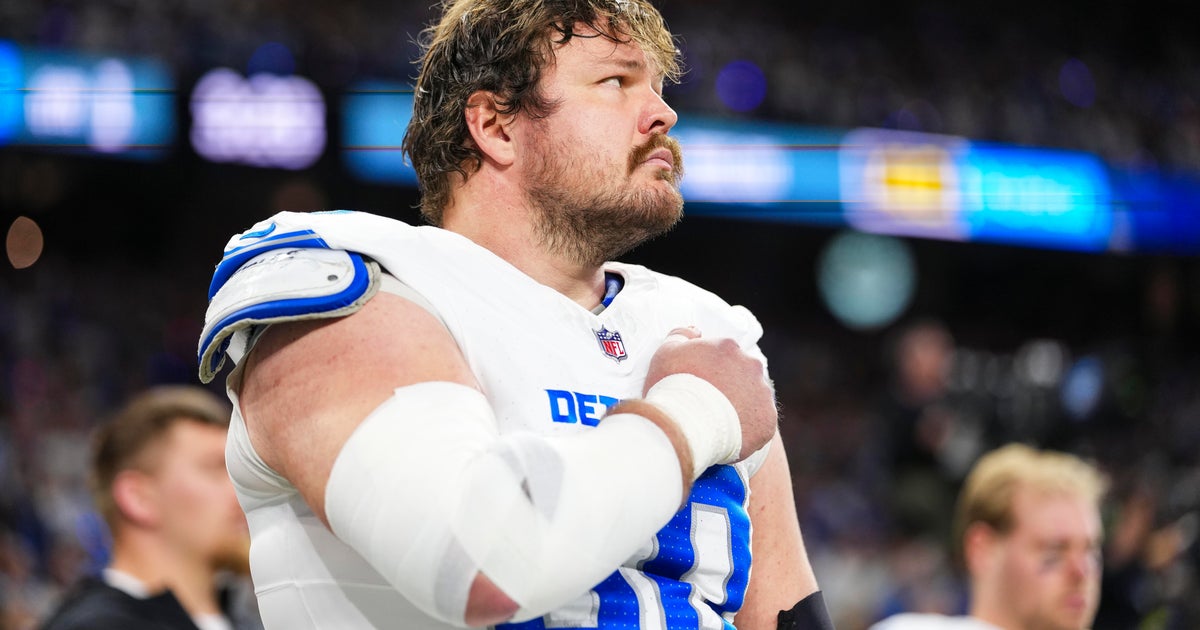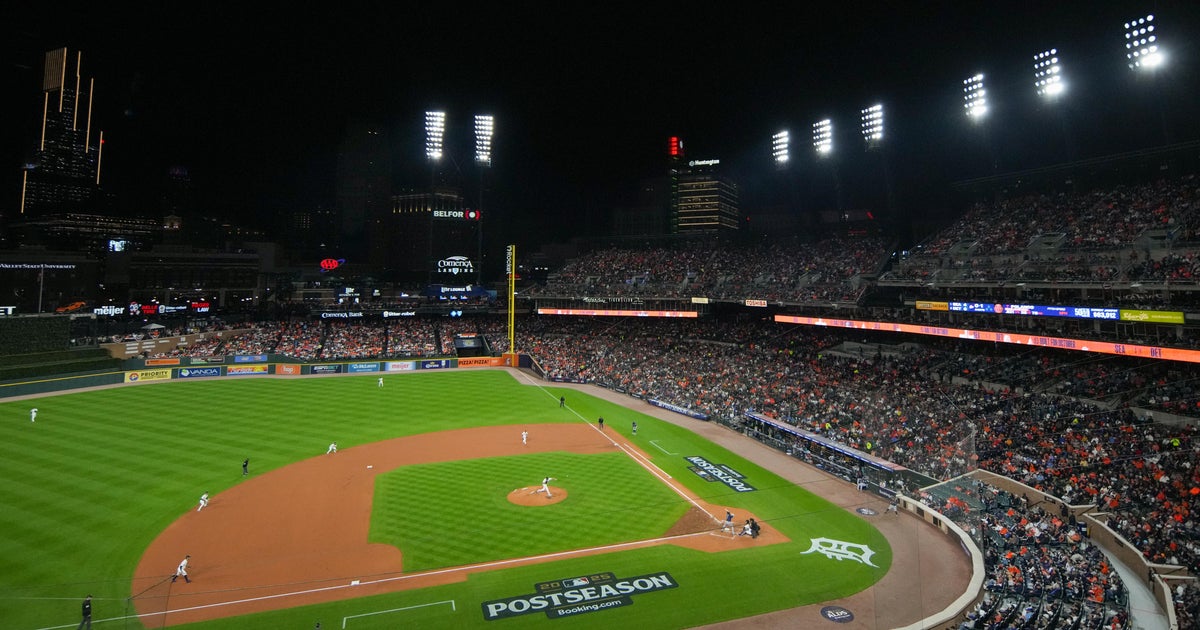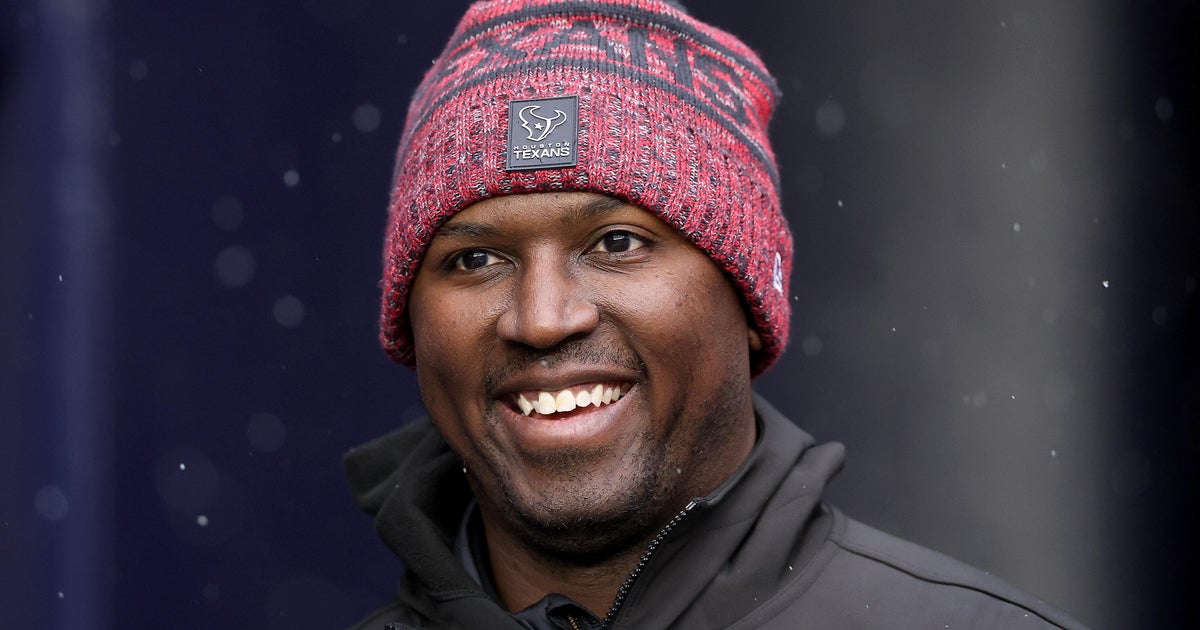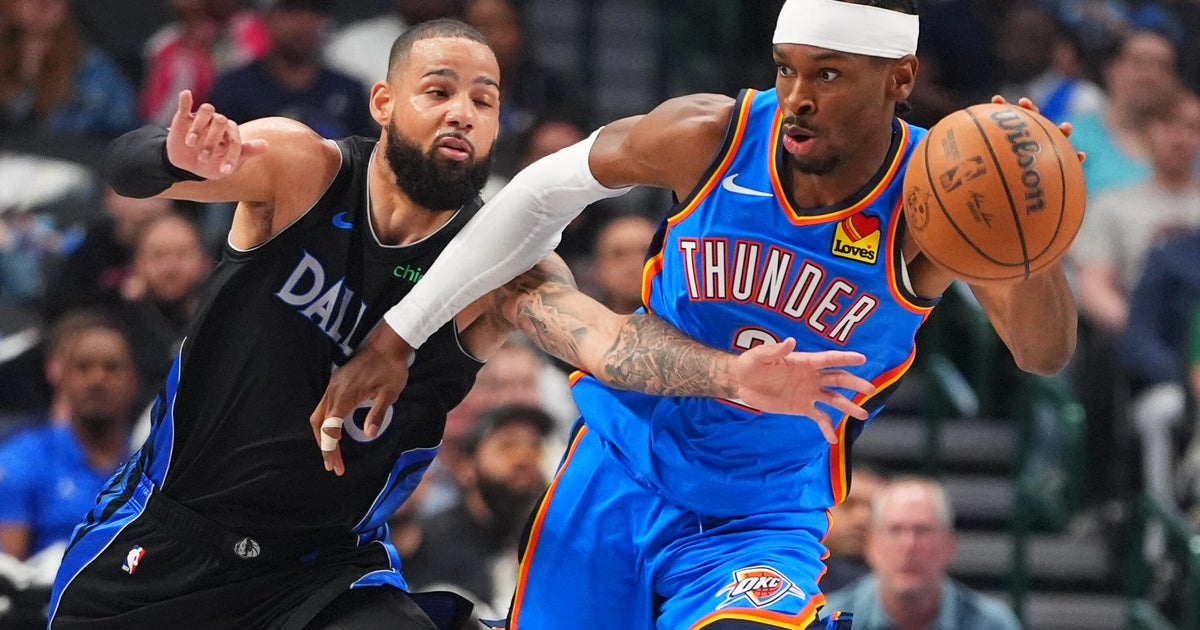Five Things Raiders Should Be More Worried About Than The Tuck Rule
By Michael Hurley, CBS Boston
BOSTON (CBS) -- Last week, late night after the Patriots-Buccaneers meeting on Thursday Night Football, the NFL Network debuted its newest episode of "The Timeline." This particular episode focused on the infamous tuck rule, and its prominent impact on a certain playoff game played between the Raiders and the Patriots in the 2001 season.
You likely remember the play. It was kind of a big deal.
But if you're like most people, you also didn't stay up until 1 a.m. on a weeknight to watch a 60-minute TV special about a 15-year-old play. And if you ended up watching it over the weekend, you might have noticed a few things.
Namely, you noticed that everyone involved with the play from the Oakland side remains very, very upset about the tuck rule, to the point where they feel "cheated" out of a championship.
I do believe there are some flaws in this line of thinking.
So, in an effort to help out players, executives and fans who still struggle with the horror of having a correctly applied rule work against them, I've decided I'd donate my time to offer a handful of suggestions for some other things they may want to focus their energy on. Together, we can all be better people.
(Ice Cube, don't read this.)
1. This Was Not Some Unknown Rule
Seemingly everyone involved with the Raiders from 2001 has acted as if "The Tuck Rule" was some magical fairy tale plucked out of thin air by referee Walt Coleman. This was simply not true.
As the show spotlighted, the rule was applied several times, including a Buccaneers-Rams game on Monday Night Football, and a Patriots-Jets game earlier in the 2001 season.
The rule was certainly known to color analyst Phil Simms, who called the game that night in Foxboro. Granted, he didn't fully grasp it (he semi-explained the tuck rule, but he thought it didn't apply if force from a defender caused the ball to come out of the quarterback's hand), but he said, "We went over this rule quite extensively before the season started."
Eventually, a producer got into Simms' ear, and he relayed the rule: "We were just told, Greg [Gumbel], when the quarterback pulls the football down or tucks it, it doesn't matter if he's intending to throw the football or not. It is an incomplete pass."
The rule didn't materialize out of thin air. It was a rule.
2. The Raiders Were Still Winning After The Call Was Overturned
How do none of the Raiders players ever mention this? They act as if the call was made and they instantly lost. That is pathetic.
Here's what actually happened after the ruling was overturned.
2nd-and-10 at Oakland 42: Tom Brady complete to David Patten for 13 yards. Here was Oakland's coverage on the play:
Did Walt Coleman's officiating crew play that far off Patten? Or was it cornerback Tory James? And did the officials tell Patten to get up and crawl forward for an extra five yards? Or was Patten's awareness just superior to that of his opponents?
Here's what happened a few plays later:
4th-and-9 from Oakland 28: Adam Vinatieri 45-yard field goal -- good.
What took place on that snap was a player making a play. That's what leads to victories: making plays. Vinatieri, in a driving snowstorm, made a big one, thus forcing the game to overtime.
And once overtime began, here's what the Raiders tend to forget all these years later: Tom Brady went 8-for-8 for 45 yards. That included a miserable tackle attempt by linebacker William Thomas and defensive lineman Grady Jackson on J.R. Redmond, a double whiff which gave the Patriots an extra 15 yards. It also included a third-and-5 where the Raiders forgot to cover tight end Jermaine Wiggins, who picked up six yards thanks to the defensive failure:
Later on that OT drive, the Patriots faced a fourth-and-4 at the Oakland 28-yard line. Rather than try another 45-yard field goal, they went for it. Patten was again left wide open on what was a horrific defensive showing for the Raiders:
After that, Antowain Smith ran for 15 yards on four carries. Linebacker Eric Barton had a chance to stop Smith in the backfield but let the running back slip right through his arms. On a third-and-5 at the Oakland 17-yard line, defensive back Johnnie Harris had his chance to stop Smith well short of the first-down marker. He missed his tackle:
And then, for the coup de grâce, Raiders head coach Jon Gruden called a timeout, thus allowing Vinatieri and Ken Walter to spend 90 seconds clearing space on the field so that the kicker could get a good footing on the snow-covered turf. He easily kicked a 23-yard field goal to put the Raiders out of their misery.
The whole game is on YouTube. It's all there to see, on the record.
At no point in those 23 plays that followed the Coleman ruling did the Raiders do anything -- anything -- that should have led them to believe that they deserved to win this football game.
3. The Raiders Cheated On The Play In Question
You know, for a team that cheated in order to force that ball out of Brady's right hand, the Raiders sure do complain a lot.
Now, to me, personally, a player hovering near the opponent's sideline who just so happens to overhear the offensive coordinator telling the quarterback what play to run? To me, that's not cheating. That type of thing might have happened more often than we could ever know. But I've been told by the masses over the past 10 years that any knowledge whatsoever of anything the other team might be doing in terms of play calls is a black-and-white case of cheating.
Look, it's not my opinion. But it is the majority opinion. And who am I to say that I'm smarter than everyone else?
So, well, watch this quick clip right here:
Cheaters!
The Raiders are lucky that all that happened to them was a playoff loss. Where I come from, this kind of tomfoolery can cost you a first-round pick and a bunch of money.
4. This Didn't Cost The Raiders A Super Bowl
Every former player interviewed for this TV special shared the same sentiment: the tuck rule cost us our chance to play in a Super Bowl.
Here's a direct quote from the aforementioned cheater, Eric Allen: "I still feel a little bit cheated because I expected to play in a Super Bowl."
Receiver Tim Brown said this on the show: "It was our chance to go to a Super Bowl. And to have that taken away from you, it's tough. It's really tough."
That's inaccurate, fellas.
Had the tuck rule not existed in the rulebook, then the Raiders would not have gotten a trip to the Super Bowl. They would have gotten a trip to Pittsburgh. They likely would have lost to the Steelers.
How do I know the Steelers would have won? Well, I don't. But I have just as much cause to say that with great conviction as the Raiders do in saying they lost their chance at a Super Bowl.
Sounds silly when you put it the other way, doesn't it?
Basically, any intimation that the Patriots' dynasty should have been the Raiders' dynasty is just sad. The Raiders had 20-plus plays to prove they were better than the Patriots after the ruling. They couldn't do it. They lost the game. To believe they would have gone on to win a Super Bowl is batty.
5. The Raiders Got Their Big Chance The Next Year ... And Blew It
That's the other thing at play here: The Raiders did get their chance to play in a Super Bowl the very next year. And how'd they do? They lost by 27 points.
It's not Walt Coleman's or Tom Brady's fault that Al Davis made the rash decision to trade Jon Gruden to the Buccaneers after the 2001 season. It's likewise not Bill Belichick's or Robert Kraft's fault that the new Raiders head coach Bill Callahan ran all the plays in Super Bowl XXXVII that Gruden knew like the back of his hand. And it's not the NFL rulebook's fault that in the Raiders' big opportunity at the end of the 2002 season, they were tailing 34-3 at one point in the second quarter.
After that Super Bowl appearance, the Raiders went on to spend the next 13 years going 63-145. They finished in last place in their division six times while having nine different head coaches. Up until the 2016 season, they waded in irrelevance. They have yet to win a playoff game since 2002.
During that same time, the Patriots went 162-46. They won their division 12 times. They kept the same head coach. They won 19 playoff games, including three Super Bowls.
It could not be any clearer that the better team won that night in Foxboro. The Raiders' loss was not a fluke. It's time to get over it.
(I can't stress this enough: Please don't tell Ice Cube about this story. Thank you)
You can email Michael Hurley or find him on Twitter @michaelFhurley.







